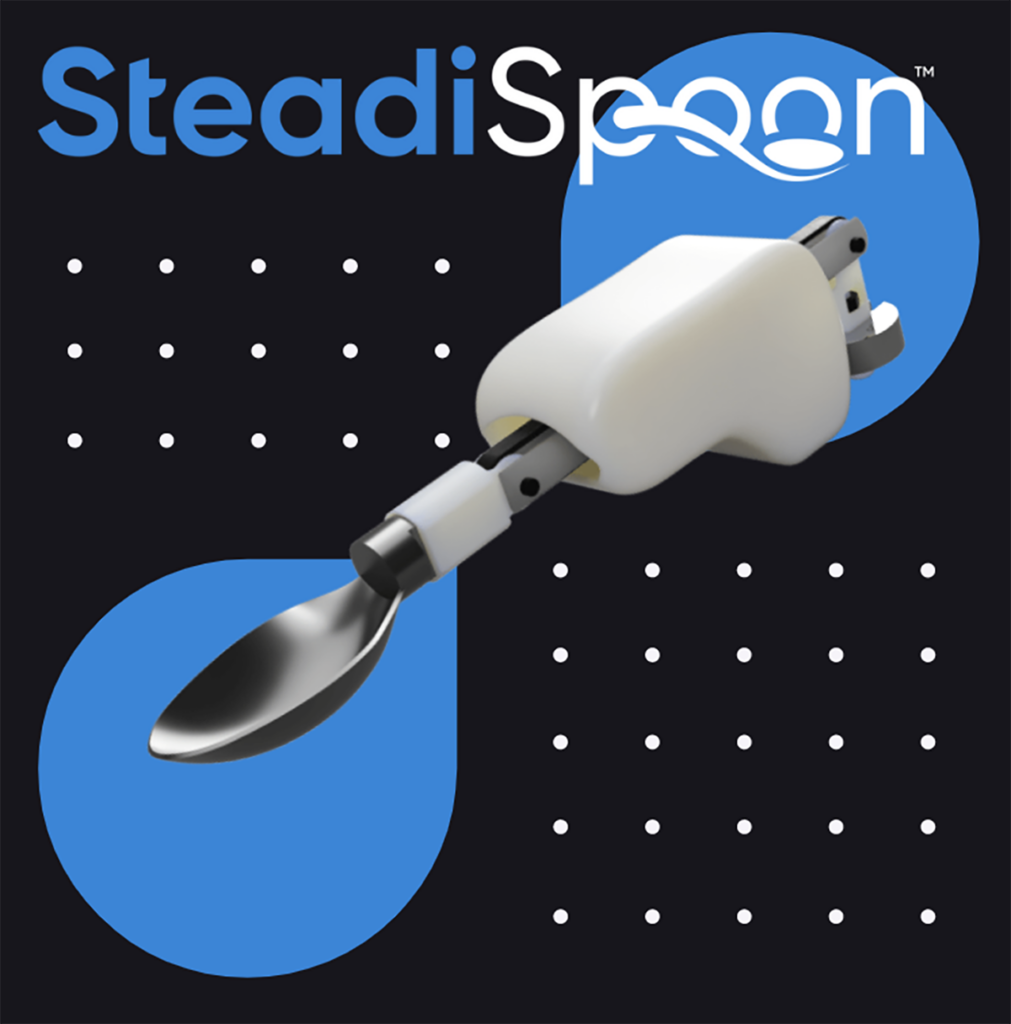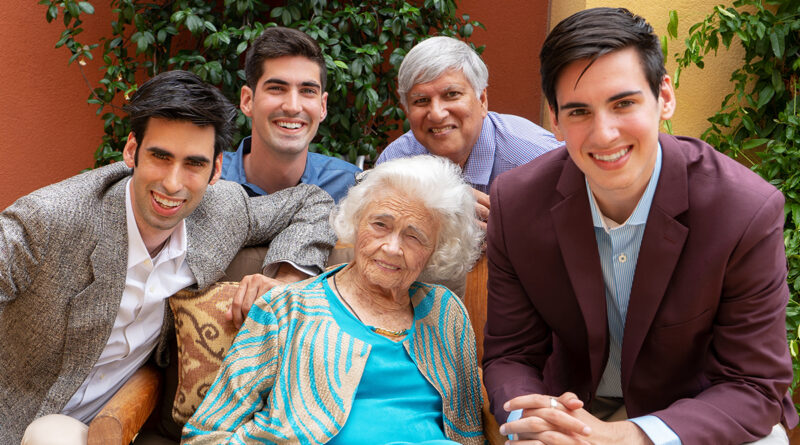Grandmother’s Need Inspires SMU Student Entrepreneurs
SteadiSpoon developed to help Parkinson’s patients eat with dignity
Raleigh Dewan arrived at SMU weighed by how Parkinson’s disease progression prevented his grandmother from enjoying the extravagant southern dinners she lovingly prepared for her family.
Debilitating hand tremors would not allow his grandmother to eat without spilling food everywhere, he said.
Dewan’s grandmother passed away in 2021, but her story and spirit continue to inspire Dewan and others working to help those suffering from neurologic disorders that cause shaking feed themselves with ease and dignity.
Dewan has partnered with SMU student Mason Morland and Emily Javedan, a Johns Hopkins student whose father is a board-certified neurosurgeon, on a medical-tech startup named for its core product, a self-stabilizing eating utensil called SteadiSpoon.
Javedan befriended Dewan at a Coca-Cola Scholars’ conference in 2019. Dewan and Morland had enjoyed creative chemistry on a previous project.
Approximately 11 million Americans and 80 million globally have Parkinson’s or essential tremors. Disabling hand tremors can lead to depression, poor self-esteem, and weight loss, all conditions that contribute to a patient’s decline.
“You know, for our entire team, this is not just an academic challenge or a venture pushed to see if it could make money,” Morland said. “We really do feel that we are doing something good, and our efforts will change lives for the better.”
Dewan had grown up watching his two older brothers on film sets and developed a fascination for the massive cameras that swung silently on motion-canceling gimbal joints to capture action scenes smoothly.

PHOTO: Courtesy SteadiSpoon
Contemplating his 95-pound grandmother’s trembling hands, he wondered if this stabilizing film technology on a micro-scale might offer a pathway to create a spoon that stayed steady.
Pursuing marketing and creative writing degrees at SMU, Dewan began researching Parkinson’s and available eating-assist devices. He found weighted spoons with heavy handles and some motorized versions already on the market but saw them as prohibitively expensive and of limited efficacy.
The Lyle School of Engineering helped seed Dewan’s project. As a National Academy of Engineers’ Grand Challenge Scholar, he received $2,000 from a designated fund administered by the Hart Center for Engineering Leadership. A year later, Dewan also won a $5,000 grant for Best Technology Idea from SMU’s Hart Institute of Technology, Innovation, and Entrepreneurship at the Big iDeas 2021 Fall Pitch Competition.
For the development phase, his SMU mentors referred Dewan to the University of Oklahoma’s Biomedical Engineering program for more specialized expertise.
The four spoon prototypes developed at OU use different proprietary mechanical mechanisms within the handle to negate the chaotic shaking motion of a user’s hand. Human trials at the OU Health Science Center’s motion capture lab tested Parkinson’s patients feeding themselves without assistance and while using SteadiSpoon.
The trial showed that SteadiSpoon performed just shy of its target at 95% of the efficacy of the leading motorized solution, which is more expensive and requires regular charging. In addition, SteadiSpoon designs are 3D-printable, allowing for scalable production and charitable licensing in non-target developing countries.









